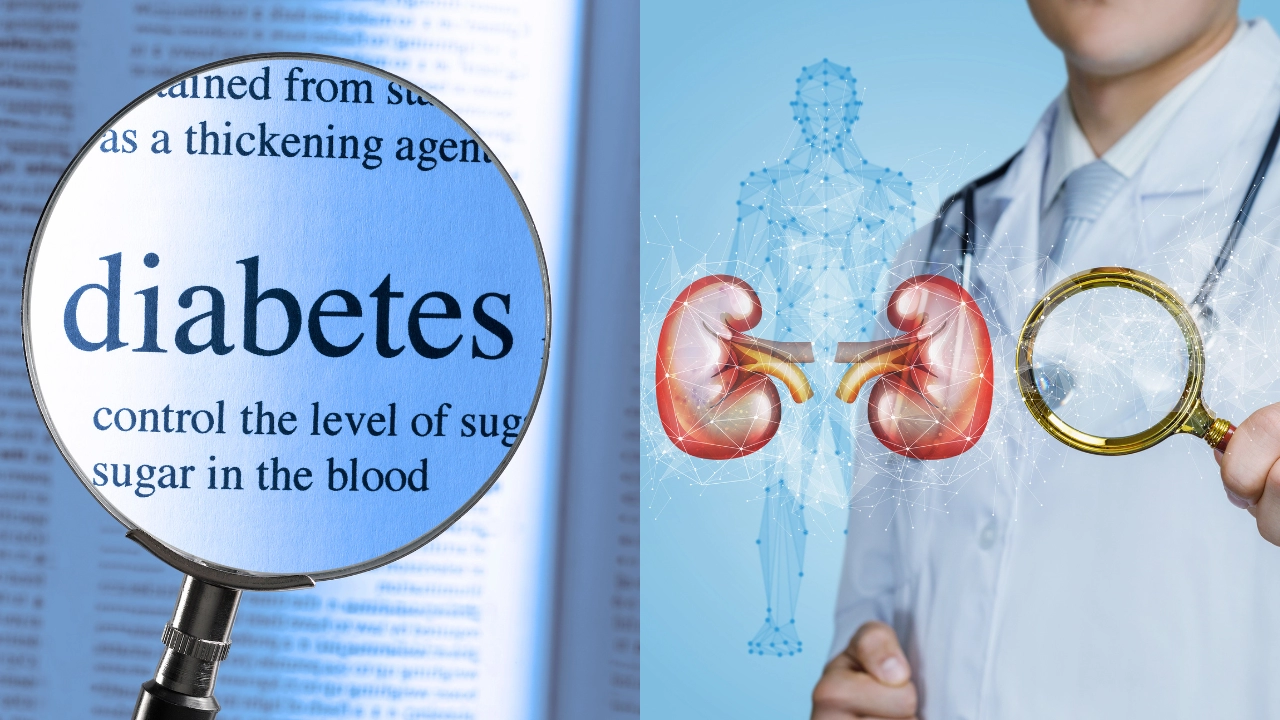Supriya Ramesh • 26 Sep 2024
5 Most Ignored Symptoms Of Kidney Disease In People With Diabetes

Image - Canva
Kidney disease, especially diabetic nephropathy, is one of the major complications associated with diabetes. Over time, high blood glucose levels can damage the blood vessels in the kidneys, impairing their ability to filter waste and excess fluid from the body. While diabetes patients are often aware of the condition's risk to their kidneys, many early warning signs go unnoticed, allowing the disease to progress silently.
To learn about the five most commonly ignored symptoms of kidney disease in people with diabetes, we speak with Dr Shri Ram Kabra, Director of the Department of Nephrology and Kidney Transplant Medicine at the Marengo Asia Hospital in Faridabad.
- Protein in the Urine (Foamy Urine): One of the earliest signs of kidney disease is the presence of protein in the urine, which often causes a foamy or bubbly appearance in the toilet. This happens when the kidney's filtering system becomes damaged, allowing proteins like albumin to leak into the urine. Most people dismiss foamy urine as normal, but it’s a clear sign that your kidneys might be under stress.
- Frequent Nighttime Urination (Nocturia): Diabetes can cause an increase in urination, especially at night. However, when kidneys are damaged, they are less effective at filtering waste, leading to more frequent urination, particularly during the night. Many people may not associate this with kidney disease and instead attribute it to other factors like fluid intake before bed or ageing.
- Swelling of Feet, Ankles, and Hands: Diabetic nephropathy often leads to a buildup of waste and fluid in the body, resulting in noticeable swelling, especially in the lower limbs like feet, ankles, and even the hands. This edema is a sign that the kidneys are struggling to balance fluids and sodium levels. People might ignore this swelling, assuming it is due to weight gain or sitting for long periods.
- Leg Cramps: Leg cramps, particularly during the night, can be another overlooked symptom. They occur due to an imbalance in electrolytes such as calcium and potassium, which are regulated by the kidneys. When kidney function deteriorates, these imbalances can cause muscle contractions and painful cramps. Diabetics often ignore these cramps or attribute them to other issues like dehydration or a lack of exercise.
- Unexplained Fatigue and Anemia: As kidney function declines, waste products build up in the blood, leading to feelings of fatigue. Additionally, the kidneys produce a hormone called erythropoietin, which is essential for red blood cell production. When the kidneys are damaged, lower levels of this hormone can result in anemia, leading to paleness, weakness, and constant tiredness. Diabetic patients may mistake this fatigue as a symptom of their diabetes or lifestyle, overlooking the possibility of kidney damage.
Early Detection and Prevention
It is crucial for people with diabetes to regularly monitor their kidney health through routine blood and urine tests. Early detection of kidney disease can help prevent complications such as end-stage renal disease, which often requires dialysis or kidney transplantation.
Some preventive measures include
- Keeping blood sugar levels in check
- Managing blood pressure
- Following a kidney-friendly diet
- Avoiding excessive use of painkillers
- Regular exercise and weight management
- Limiting the intake of salty and processed foods
Get Latest News Live on Times Now along with Breaking News and Top Headlines from Health and around the world.